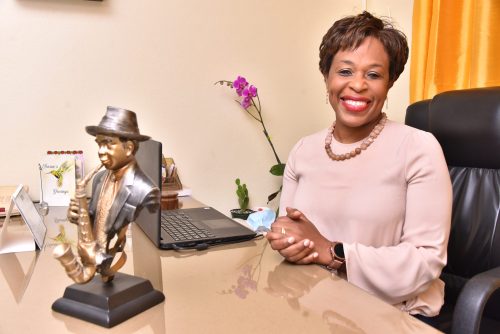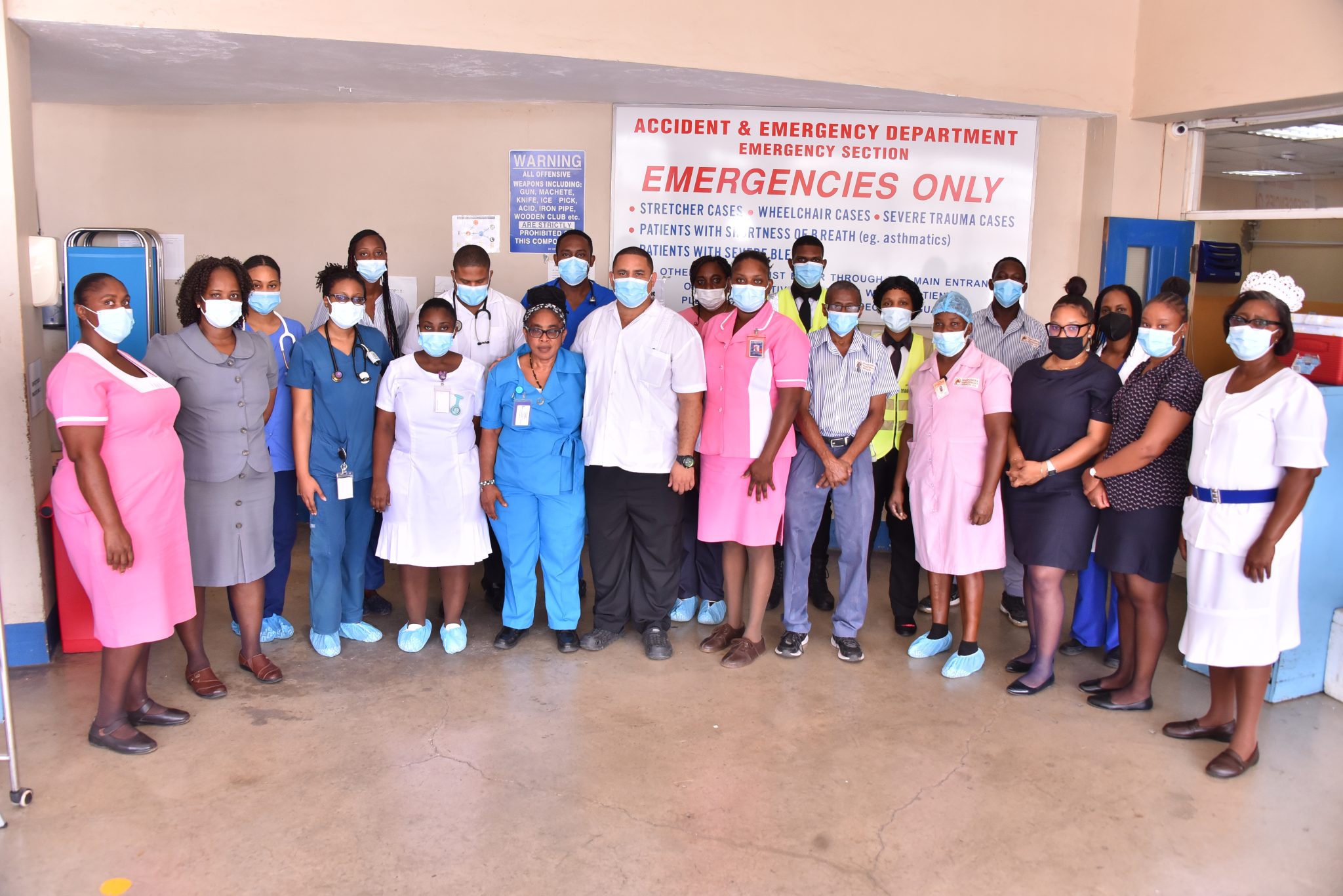Dedication Of Staff Helps Spanish Town Hospital Power Through Pandemic
By: , June 29, 2022The Full Story
It was the staff of the Spanish Town Hospital who responded to the COVID-19 pandemic like champions, which saw the institution through one of the toughest periods in its 70-year history.
This is the considered view of the management team of the largest Type B facility in the island, as articulated by Senior Medical Officer (SMO) Dr. Jacqueline Wright-James.
The SMO tells JIS News that the hospital, which serves the parish of St. Catherine and surrounding areas, has largely been at the epicentre of the COVID-19 fight since March 2020, after experiencing St. Catherine’s first wave which was an outbreak that led to a workplace cluster that caused over 250 infections.
She indicates that from the onset of the pandemic, the volume of cases was significant in parts of St. Catherine, which she said has accounted for about 20 per cent of the national cases to date.
This, Dr. Wright-James points out, translated to significant increased access by patients to both the Accident and Emergency Department and in-patient care, “especially in September 2021 when we had the third national wave (caused by the Delta variant of the virus), and saw a large number of admissions.
“When we looked at the admissions over the last two years, especially during the waves, COVID-19 … accounted for about 10 per cent … and we roughly see about 20,000 admissions per year,” the SMO explains.
She adds that there were times when the COVID cases went as high as 35 per cent of total admissions.
“In September [2021] when we had the Delta wave, our occupancy for COVID patients was as high as 200 per cent”, Dr. Wright-James says, adding that this was calculated against the number of allocated beds for COVID-19 cases.

“At times we had up to 150 COVID-related patients in the hospital, out of our usual numbers of about 430. So we can see with these significant numbers and because space has always been a challenge for us, that we have outgrown our infrastructure with this added influx of patients,” the SMO contends.
She highlights the fact that several changes had to be made to include the reconfiguration of some spaces and reassignment of wards, “so the pandemic basically … challenged our hospital capacity in many ways, one of which was space”.
Not easily daunted by the challenges, however, the SMO gives high marks to her team who she says made every attempt to accommodate all patients who sought care at the institution.
“Among the things that it taught us as a team, were how to plan for, how to respond to and how to confront this kind adversity. It also taught us how to, at the same time, manage our routine, continue the business of the hospital, and attend to our other patients,” the SMO notes.
Dr. Wright-James explains how her team was forced to get creative and find innovative ways to keep the communication channels open in different areas of service.
She says that communication leaflets were created for the patients who were in isolation and unable to receive visits from family members.
“We also had to delve a little into telehealth, especially when trying to triage our outpatient clinic, so we did a lot of calls on the telephone and of course we had to use the technology and make use of the virtual platform to interact, have meetings with, and to continue education for our staff members,” the SMO adds. She contends that adaptability as a team was one of the positives for the staff of the hospital as they pushed through the challenges of the last two years.
“I think the pandemic also highlighted how resilient the team is. It brought to the fore more about self-protection and it taught us how to rally together as a team,” she notes.
Dr. Wright-James adds that the yeoman service offered by the staff through the period gave the management team many proud moments and helped the facility to respond to the needs of its patients.
“I believe that the teamwork and the commitment of the staff are what kept us going through this time. Every member of the team put their shoulder to the wheel and recognised their worth. Many times, it was as if we were going to get derailed, but I think because everybody was convinced about how important their task was and applied that teamwork, we made it,” she says with a smile.
She points out that during the period, staff members were also afflicted with the disease, but admits that it was manageable.
Approximately 10 per cent of the staff tested positive for the virus but there were no mortalities.
“We didn’t experience severe enough disease for many staff members to be hospitalised. We had about three staff members out of a complement of about 900 who … required hospitalisation” Dr. Wright-James points out.
The overall experience, the SMO says, presented many teachable moments and she adds that things that may have been taken lightly in the past like “even the air we breathe and the oxygen we use” took on new meaning.
“We were taught to be a little more judicious with our sundries and supplies and infection control was a big thing,” Dr. Wright-James notes.
The resilience of the team and their dedication which shone through as the facility grappled with a pandemic that threatened its very reputation, has made the management team extremely “proud of what we have accomplished together,” the SMO proudly states.


